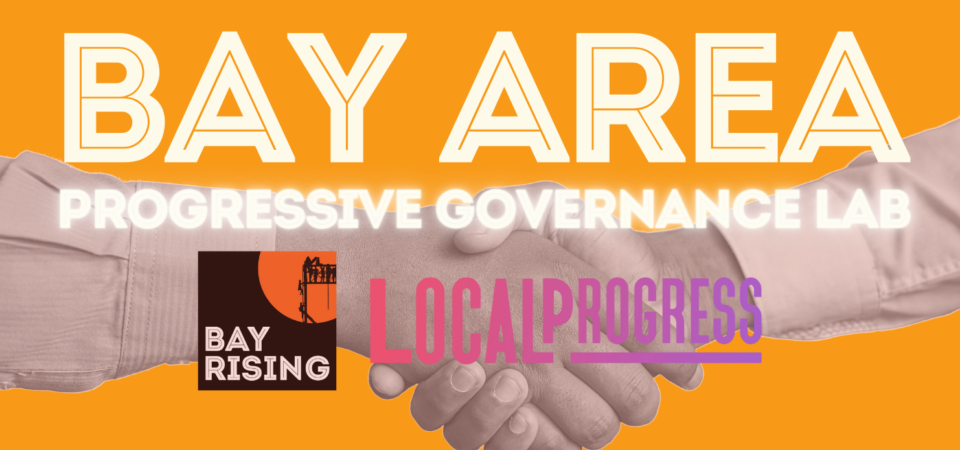
Context
With every election, the Bay Area elects many new progressive officials, including many who are “firsts” in their legislative bodies and who are part of newly established governing majorities. This creates a unique opportunity for the development of new leadership and new models of governance in the Bay Area. As we face the immense challenges and opportunities in the region, it is imperative that these local elected officials and social justice organizations work in partnership to address the deep inequities in the Bay.
We know that organizations, labor unions, and donors spend substantial amounts of time, energy and money helping these history-making candidates win elections – but almost nothing is invested in helping them succeed, learn and grow once they are in office. In other words, the skills needed to win an election – fundraising, communications, fieldwork – are not the same skills needed to govern effectively. Once in office, it is necessary that our elected officials have a solid handle on policy analysis, constituent outreach, coalition management, and more.
The growth of our movement has always depended upon growing leaders who leverage and steward our greatest strength: collective action.
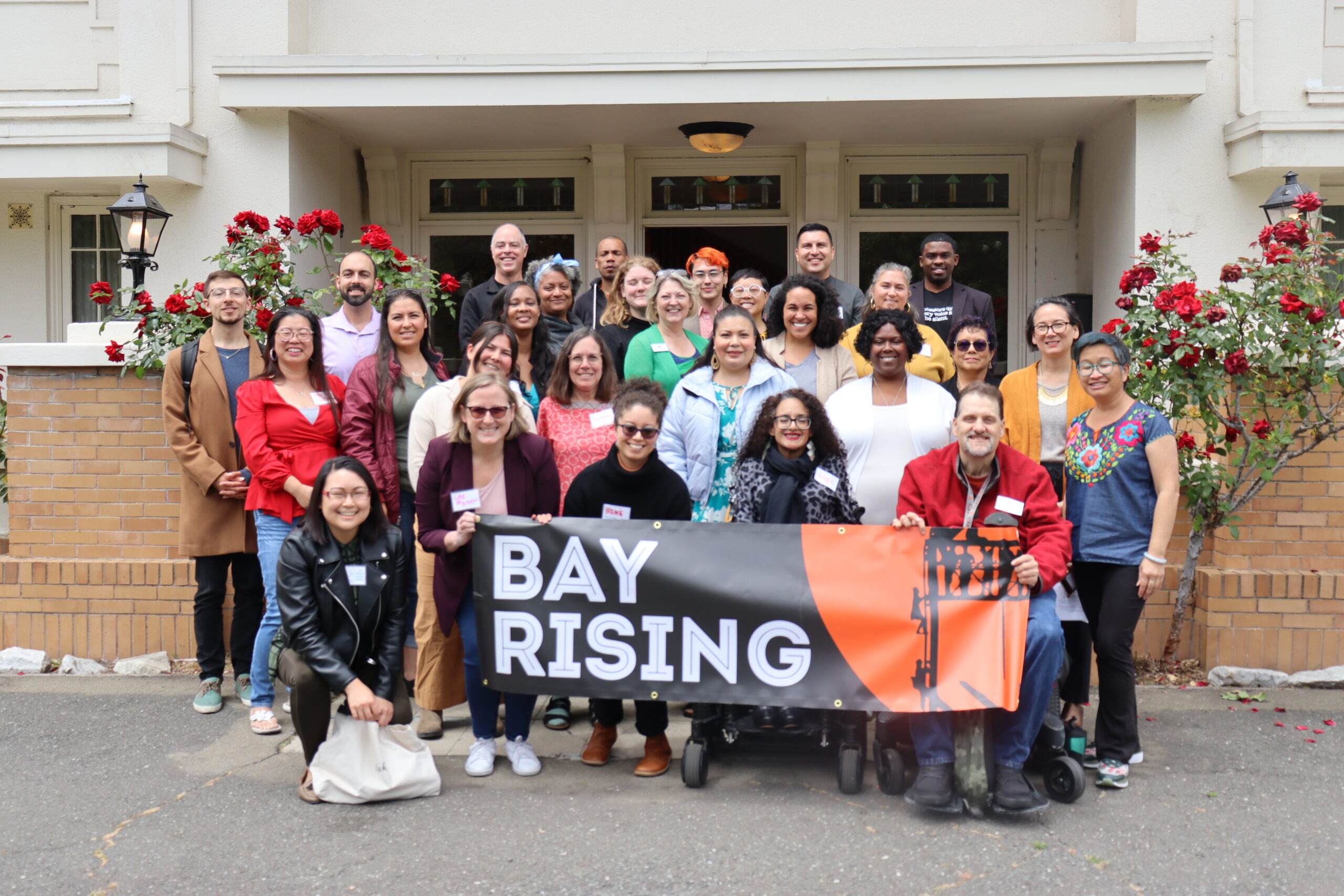
The Crisis of Isolated Leadership
What’s more, when the Bay’s homegrown progressive leaders move into elected or appointed seats at the helms of government institutions, we often see them pulled into individualistic structures and cultures that isolate them from their bases and allies, losing focus on the values, goals and communities that brought them into leadership, and becoming reactive to political winds and paths of least resistance.
Time for a Paradigm Shift
These shortcomings are not merely due to a lack of skill; the crisis in public leadership and mutual accountability requires nothing less than a paradigm shift. There is a pressing need for leadership programs that target not just individuals but cohorts of leaders and thereby the fabric of public leadership in our region. We need programs that initiate and steward deep and lasting partnerships for grassroots activists while preparing and supporting them to succeed as values-based, goals-driven, accountable public decision-makers.
That’s why Bay Rising and Local Progress formed a strategic partnership that utilizes Local Progress’ flagship program based on the proven model it has created and successfully implemented with partners in several locations across the United States. This program builds intentional, strategic relationships among key leaders and organizations who share a commitment to working-class, immigrant and communities of color, but may otherwise never have recognized their common goals.

Bay Rising and Local Progress came together to launch the Bay Area Progressive Governance Lab in December 2022. The Lab exists to ensure that values-aligned local elected officials have the resources, assets, tools, and skills that they need to become powerful and effective leaders. Our program runs for seven months, currently from December 2022 to June 2023. We are providing a network of support for participants after the program formally ends in June 2023 (more below).
Collaborative Leadership
The Bay Area Progressive Governance Lab trains progressive elected leaders in a new school of collaborative governance. Collaborative governance means that leaders recognize that our regions are governed by coalitions – not individuals – and act towards building the progressive governing coalition. They actively participate in the give-and-take of support and accountability with values-based allies. They seek out opportunities to lift up the work of allies. They reject wedge issues and resource fights that pit progressive constituencies against each other. They act together to limit the effectiveness of opponents and rein in would-be allies who have gotten off track. With the goal of advancing the positional power of the movement as a whole, they strategically step up, step back and encourage others to do the same. In short, institutional leadership roles are treated as continuations of the work of grassroots organizers, not departures from it.
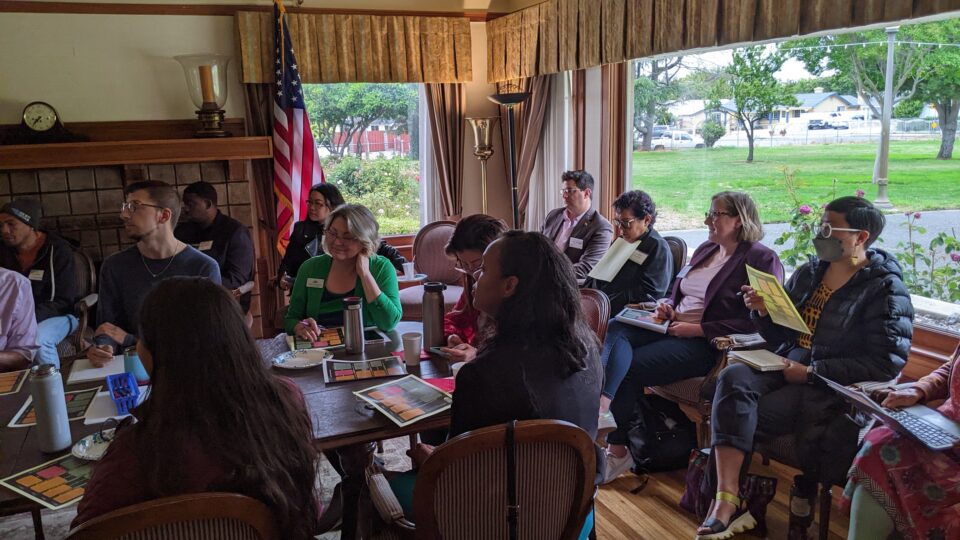
Our Curriculum
Our curriculum includes an overview of tools and best practices for transitioning into elected office, how to set up and run an effective office, dealing with governing tensions, and setting a bold agenda.
Our program emphasizes an organizing approach to governance, including training on basic skills like power mapping, relational organizing, and coalition building. We also focus significantly on models for collaborative and inclusive governance, working towards a new vision for progressives to hold and exercise governing power.

The structure of the government can be daunting and confusing to maneuver, and further exacerbated by the complexity of policy discussions and the lack of space for institutional reforms. The Lab explores how to effectively navigate bureaucracy, build an effective office, and collaborate within the organizing ecosystem. Our trainings will also cover the rules of relevant governing bodies to ensure that members understand all of the resources and levers that are available to them as local leaders. Finally, the program will cover the structural reforms and changes that need to take place in order to effectively address the historical hurdles that have hindered bold leadership on a wide range of issues.
Program Structure
Besides monthly trainings, the program provides coaching, a post-training network, and a curated space for deeper conversations about current issues. Participants receive access to robust technical expertise in training and curriculum development, a network of elected officials who serve as trainers and mentors, and access to staff with a deep knowledge of the needs of local elected officials.
Post-training support will be provided to all participants and may include dedicated coaching hours and in-depth strategy sessions for individuals who request it. What makes our program so unique is that we are building relationships and connecting to communities most impacted to deepen long-term partnerships. The program connects participants with broader work to advance the agenda of Bay Rising in partnership with elected officials from across the region. Through Local Progress’ national network, the program will also connect participants to national cohorts and working group programs focused on issues ranging from affordable housing to developing non-police emergency response and violence prevention programs.
Some of the Progressive Governance Lab participants at our January session
About the Partners
Bay Rising is a growing alliance of community-led organizations across the Bay Area that knows we have the power to become co-creators of our future alongside our elected officials. Local alliances participating with Bay Rising in this program include Oakland Rising, San Francisco Rising, Silicon Valley Rising, and Lift Up Contra Costa. Grassroots, community groups that organize communities of color, led by people of color, drive each of our local anchors. Our collective constituencies include tens of thousands of low-income and working-class immigrant, Black, Latinx, Asian, and Pacific Islander communities. Together, we support each other to increase voter turnout within our communities, educate voters, build the capacity to run electoral campaigns and develop local leaders. As we grow beyond our core counties of Alameda, San Francisco, and Santa Clara, we are supporting emerging and existing base-building groups that represent communities of color and working-class people in additional counties including Contra Costa and San Mateo.
Local Progress Impact Lab brings together local leaders, partners, and experts to build the knowledge, skill, and leadership needed to advance racial and economic justice at the local level. Learn more: www.localprogress.org
Host committee members include Jovanka Beckles (AC Transit Director, Ward 1), Nikki Fortunato Bas (Oakland City Council President), Lateefah Simon (BART Board of Directors), Sandy Fewer (former San Francisco Supervisor), Kevine Boggess (San Francisco Board of Education), Keith Brown (President, Oakland Education Association), and Jean Cohen (South Bay Labor Council).
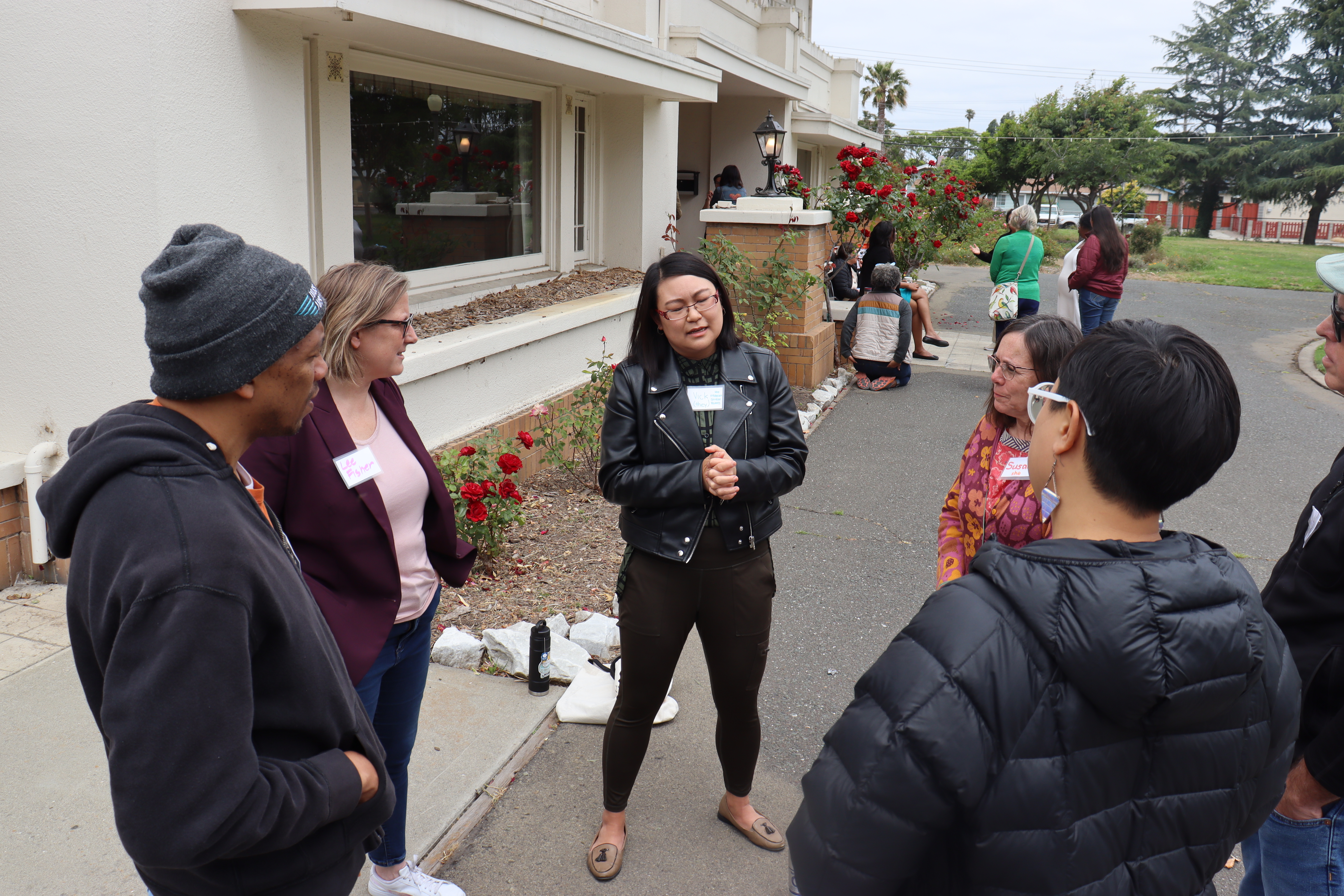
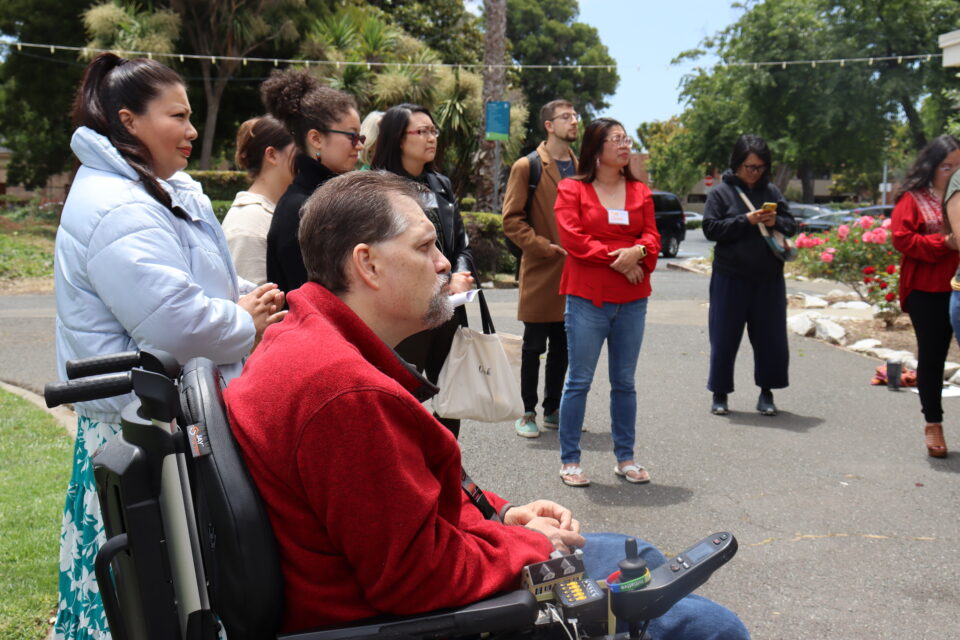
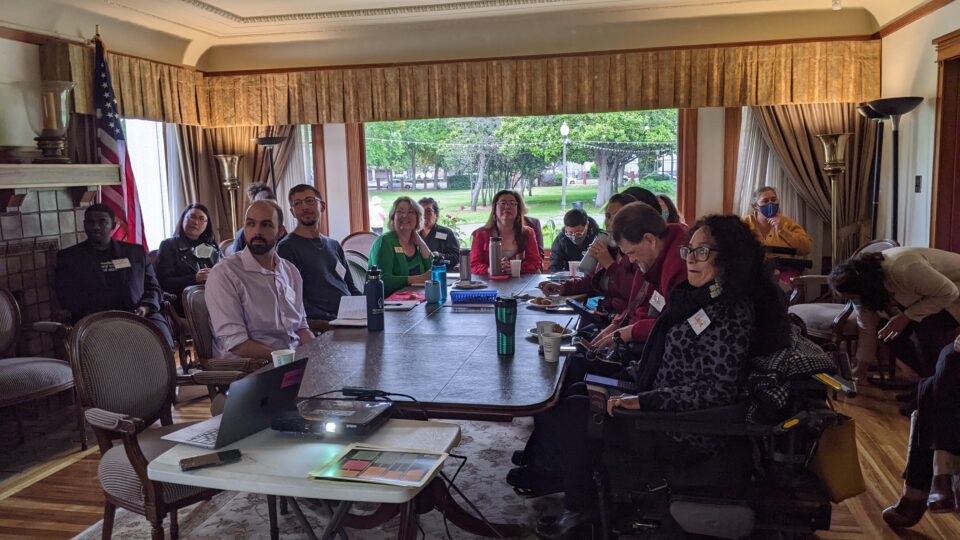
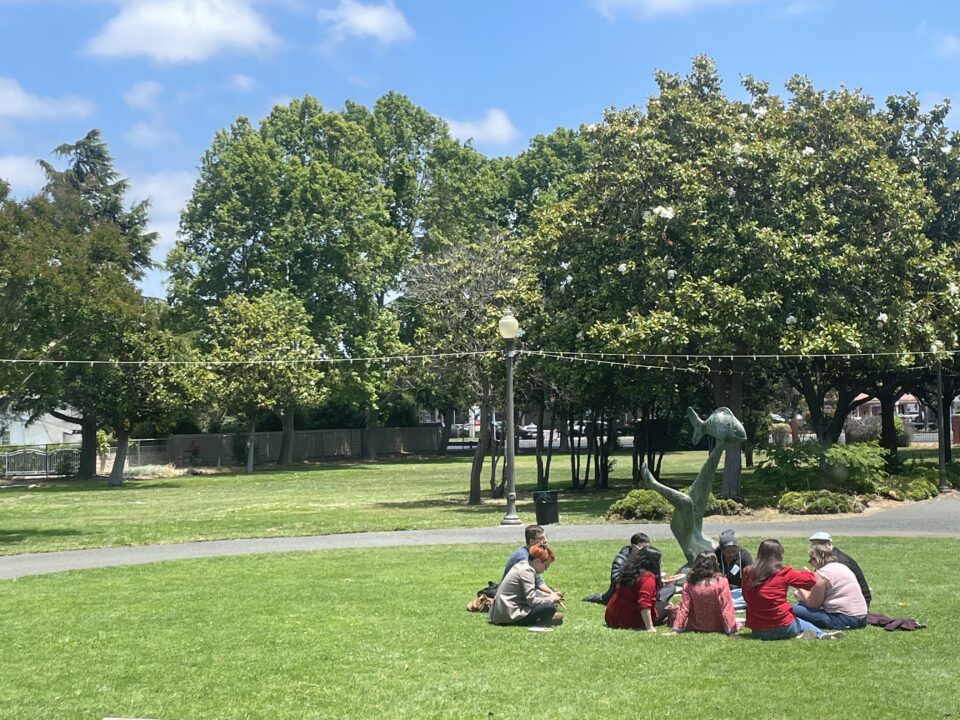

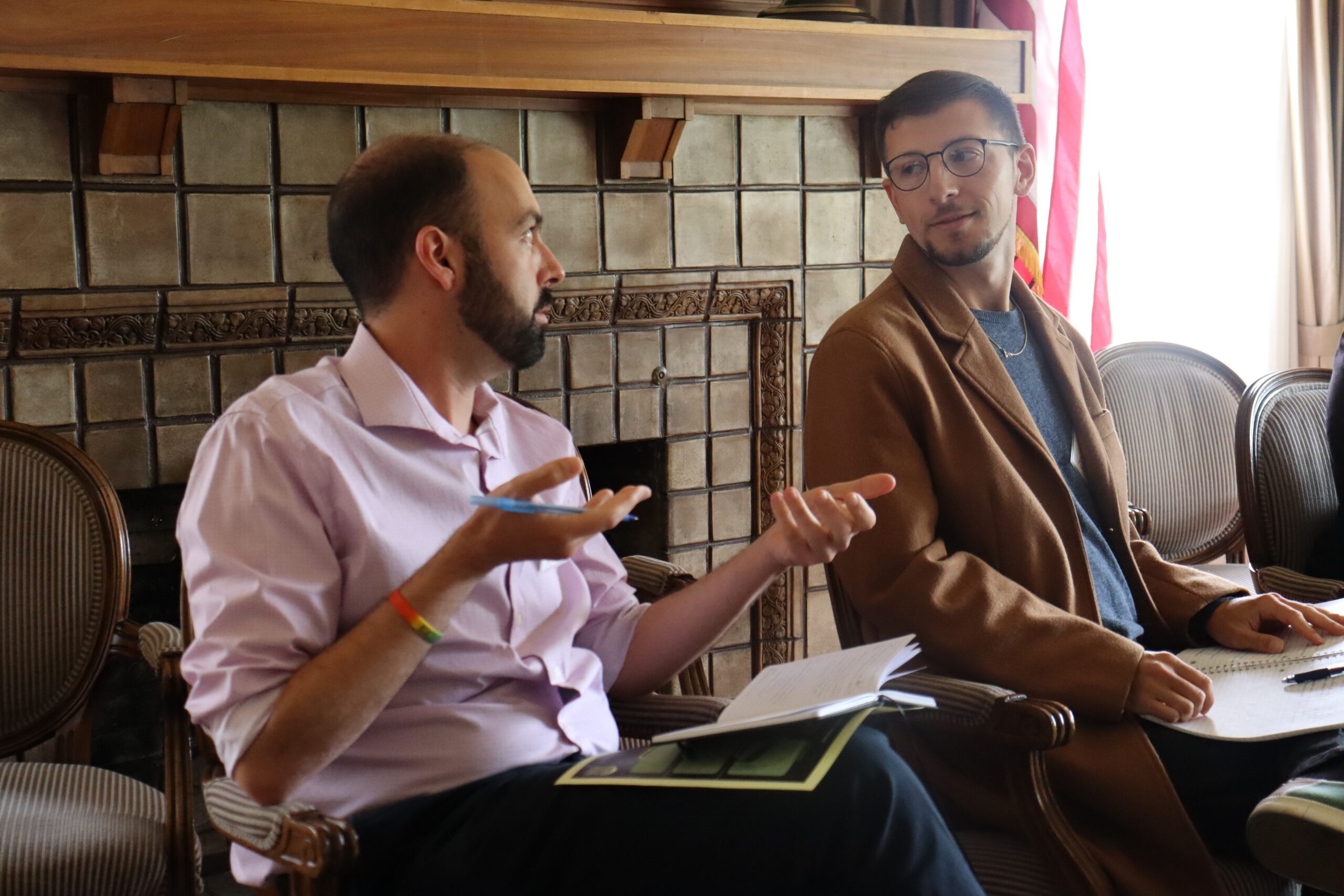
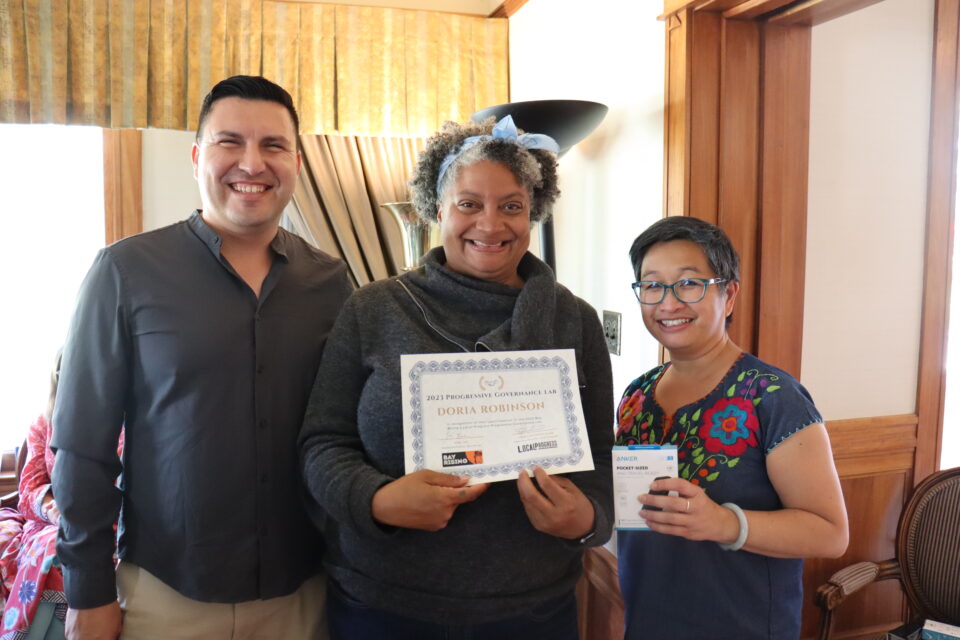
The training series is non-partisan and open to any candidates who win general election races and are interested in policy and governance practices that promote economic and racial equity, regardless of party affiliation. The content of the training focuses solely on non-partisan content and is not relevant to candidates or the electoral campaign context. The program is free for all participants.
For application information, please reach out here.